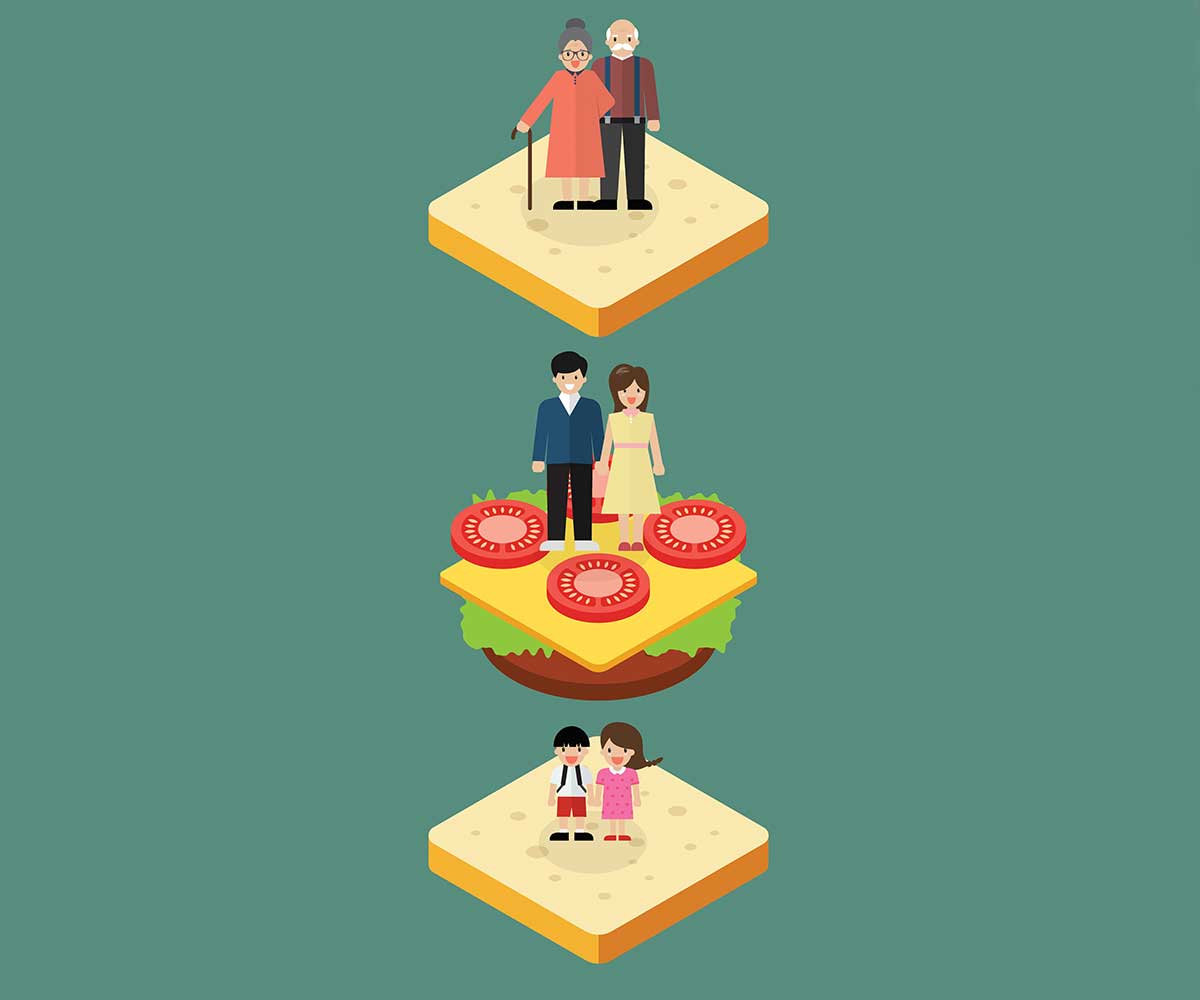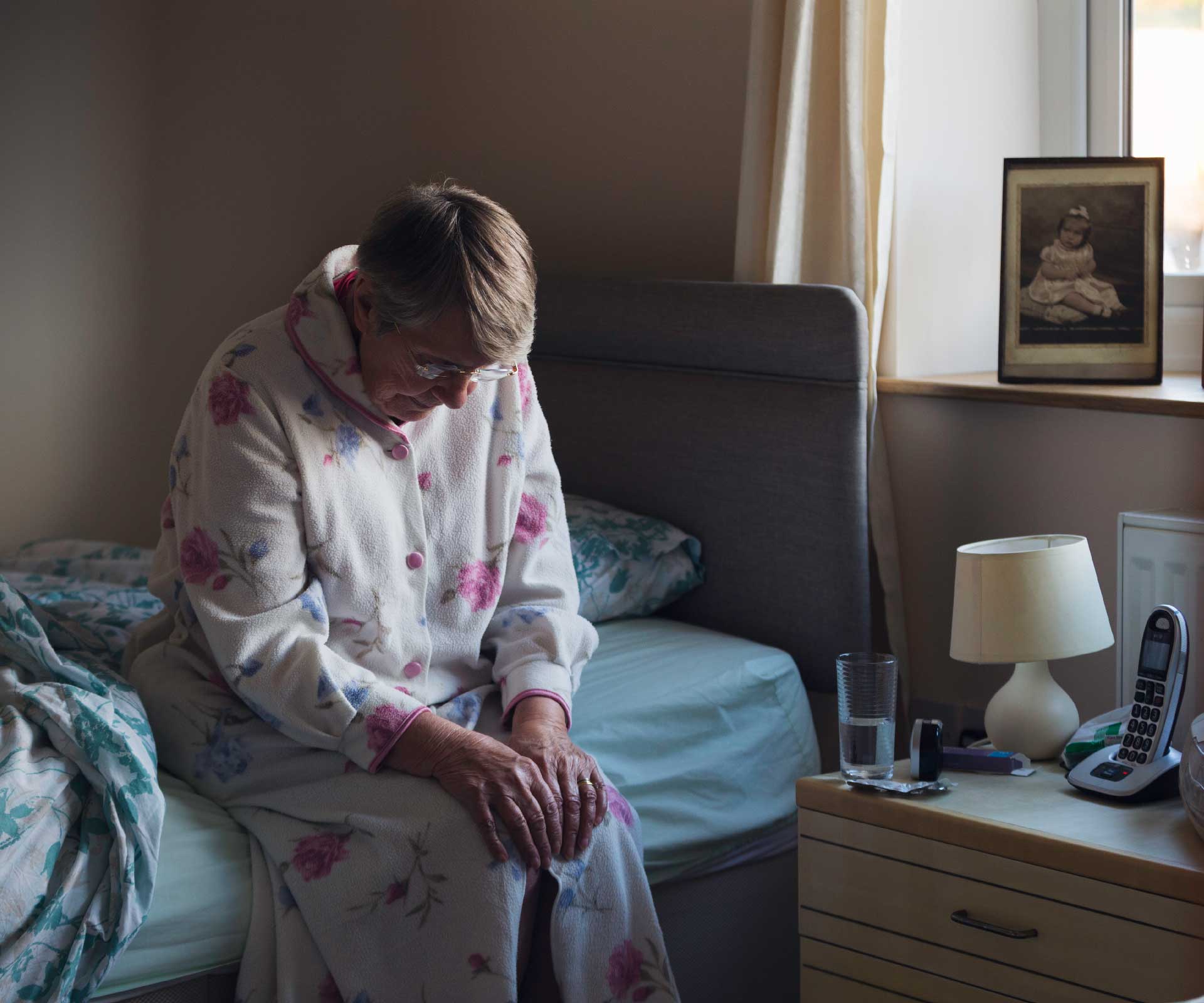Picture this. You’re at work, trying to squeeze as much out of the final hour of the day as possible before dashing to pick up the kids from after-school sport. There’s chicken defrosting in the fridge, and the dog needs a walk. But then your phone rings, and the voice on the other end calmly explains that your dad has suffered a stroke and is in hospital, near his home at the other end of the country. Can you please get there?
So you down tools, chat to the boss, call the babysitter, book a flight. And before you know it, you’re at Dad’s side, holding his hand, and wondering if he will be able to speak again soon, and how long that might take. You need to get back to the family after the weekend – and you’ve only managed to squeeze a few days off work. Who will take care of Dad once he’s discharged?
Miranda Smith knows this scenario – and hundreds of other iterations of it – only too well. Her agency, Miranda Smith Homecare, receives dozens of calls each month from the family members of ageing New Zealanders who suddenly find themselves dealing with a parent’s unexpected health event – maybe a stroke, or a fall, or a cancer diagnosis. With busy lives themselves, and dependent children, they’re now under pressure to support two generations at once. And often, they’re in the dark about what their mum or dad would like to happen next – and who will pay for it.

Miranda started her palliative at-home care business two decades ago.
Caught in the middle
“It’s a really common situation,” says Miranda, 44, who has been in the homecare business for two decades.
“Often, those of us in the 40-60 year age bracket with children at home as well as ageing parents are referred to as the ‘sandwich generation’, because we’ve been caught in the middle. I’m one of them – I have three busy boys and an active mum, and while she lives independently right now, that could change in a heartbeat. We sandwich generationers need to be better prepared.”
Miranda, who started her business in 1999 from the spare room of her Auckland flat when she was 24, with just a few dollars, “no staff and no clue!”, now employs 30 staff across five offices, as well as a small army of 350 carers who deliver aged, respite and palliative care to those wanting to retain a degree of independence in their own home.
But after noticing an upsurge in the volume of calls from “understandably distressed” family members who were dealing with a parent’s health event and looking to her team for guidance on what to do next, Miranda took matters into her own hands.
“I commissioned some Colmar Brunton research last year because I wanted to find out more about what was happening within families,” she explains.
“Our observation was that family members often didn’t have enough information from their parent about their wishes – and sometimes, due to the nature of the health event, the parent would be unable to communicate with their son or daughter. That might be due to a stroke, dementia, many things. And it’s a really tough situation to be in. What happens next is that the family have to make reasonably urgent, pressured decisions on behalf of that parent in order to ensure there’s continued care.”

The research threw a spotlight on the large numbers of Kiwis – those classed as belonging to the sandwich generation – who really didn’t have a clue what would happen if their parent needed them: Eight in 10 of us – many of whom don’t even live in the same region as that parent.
And for 70 per cent of us, we confessed we’d need to arrange – and pay for – some sort of additional help.
“That’s a huge pressure,” Miranda says.
“It’s easy to assume that the government will shoulder the cost of aged care, and while, yes, a few hours’ care might be available that way, most of the bills will fall to the client or his or her family. Sometimes people haven’t thought about where that cash is coming from until they’re in the thick of having to find it from somewhere.”
Miranda says there’s a simple fix.
“Talking! Openly and earlier than you might think you need to.”
She cites one friend who, nervous about what her sprightly single 70-year-old mother might think of introducing the topic of her possible future decline, decided to casually drop it into conversation over the laundry.
“They were folding towels one afternoon, when she said ‘Mum, have you given any thought to what you’d like to do if, God forbid, you needed some kind of care?’ And like so many parents, she had. She actually had a plan, a retirement home she was looking into, and some money saved to pay for it.”
Home-based care, the type Miranda’s business organises, is a great option too, she says.
“It’s flexible, and scaleable, so a client can have a few hours a week most of the time, and amp it up if they need to. And there’s a genuine relationship that grows between the client and their carers.”
For example, when a client passes away, the carers will often not only attend the funeral, but “they’ll be invited to sit close to the front, near the family, because they’ve grown to know that person over a long period of time.”

Miranda admits she has yet to initiate the conversation with her own mother about her wishes for the future.
Rewarding career
It probably didn’t occur to Miranda, when she was doing timesheets and signing cheques out of that city flat back in the 90s, that she was beginning a business that would continue to thrive as she worked in around her family of husband Campbell and sons Max, 12, Gus, 11, and Jimi, seven.
Or that she’d one day find herself headquartered in picturesque Hawke’s Bay, and that Miranda Smith Homecare would survive both economic down-turns… and earthquakes. The 2011 Canterbury quake remains etched in Miranda’s memory.
“Our phones were ringing off the hook, with frantic family members who wanted to locate their parents, and our team just mobilised. Those carers were run off their feet, checking on their clients, phoning their families and helping clean up. These were people who had their own concerns, their own traumatised families and tumbled-down houses. But they just didn’t stop. I was so proud of them.”
Miranda says one of the challenges for the fast-growing aged care industry is demand – and the lack of young people entering the industry. She’d like to see a change. “It’s a really rewarding career for warm, social, empathetic people – and the hours are often flexible.”
Back to that difficult discussion so many of us need to have with Mum or Dad. Miranda has some tips for getting started. “Do a bit of prep before you launch into it, keep the chat positive – you’re having this discussion now because you want your parent to feel safe, secure, and really enjoy life in the environment they choose to – and then let them go away and think about the options.”
So, has she had the chat with her own mum? Miranda laughs. “You know what? I haven’t! I need to. I will. I promise.”
Miranda’s top tips for talking about aged care
Have the conversation somewhere Mum or Dad feels comfortable or calm – a relaxed setting.
Jot down some ideas on paper – a bit of an outline to organise your thoughts before you begin.
You need to be quite specific in what you discuss, asking questions about who will help them make key decisions, who might support them when a health issue arises, what long-term care might look like to them, and whether they are living in a place that’s suitable for them as they age and has easy access to support services.
Be sure to empower your parents to make their own choices – centre the discussion on their freedom, their safety, and their own peace of mind, rather than yours!
Be respectful of their views, and don’t overwhelm them with too much information to begin with – plant the seed, but give Mum or Dad some time
to digest and think about the options.


